

The number of e-learners will cross 57 million by 2027. Similarly, the projected value of the online education industry will be $1 trillion by the end of 2032. These stats show the thriving demand for online courses which is also generating a significant space for educational institutions but also individual instructors who have a passion to share their knowledge beyond borders.
In this post, we are going to share a step-by-step guide to designing an online course (and earning money in the process.)
Also Read: How to sell courses like Udemy for (nearly) free?
The Significance of Well-Designed Online Courses
It’s beyond doubt that online learning is appealing. However, ultimately, the success of an e-learning platform heavily relies on its design!
A well-designed online course can engage learners effectively, foster knowledge retention, and provides a seamless learning experience.
Therefore, understanding the key elements involved in designing an online course is crucial for course creators.
Fundamental Elements in Designing Course on A Video Hosting Platform

Three key elements play a decisive role in making your course a success:
- Student Evaluation
- Learning Objectives
- Your Course Structure
These elements work together to create a cohesive and long-lasting learning experience for the audience. In this comprehensive guide, we will look into each element and explore practical strategies for designing an online course that truly delivers results.
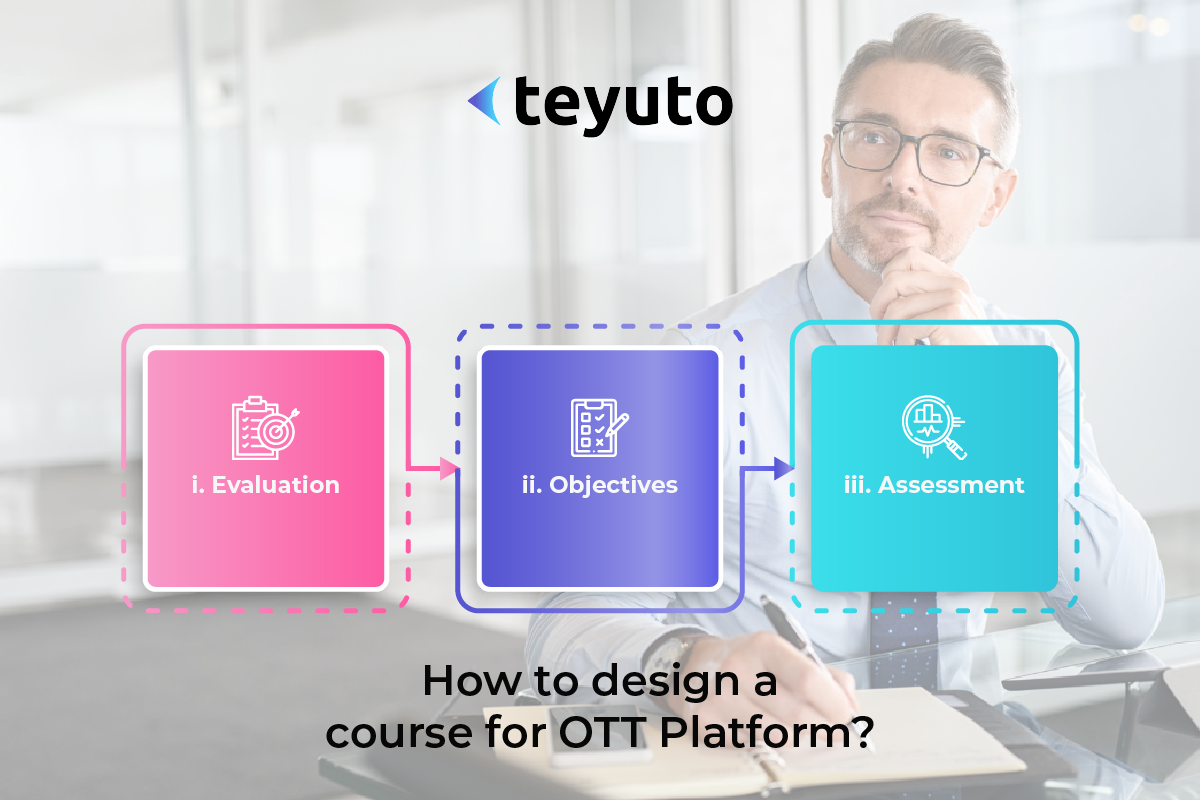
Evaluate Your Students
Assessing a student's learning capacity is the first step in making an excellent course. Before designing a course, it is essential to cater to individual needs because different students demonstrate different capabilities in several directions which also impact their capacity to gain and understand academic problems.
Set Learning Objectives
Before developing the course content, it is important to organize a solid internal framework of content objectives, so students know prior to joining a full-time course what they will get at the end of the course duration.
You can prepare this framework by following the following points:
- Write down the skills students should acquire
- Breakdown content in weekly assessments
- Implement the right strategies to provide helpful content to students
Design Your Course Structure
Designing the course structure involves the steps to organize topics and relevant material in a sequence. Always remember that topics should be aligned with the learning objectives. You can organize your course structure in the given steps:
- Compile a list of topics of relevant areas
- Narrow down your list
- Select appropriate resources (e-books, PDF files)
- Adopt a striking teaching style (theory to practical)
- Short & long-term assessments
You must always think from the perspective of your learners. What skills will they need to proceed to the next level, say, in the next chapter or week? Is there an adequate mix of practical and theoretical knowledge? Is the course going too fast or too slow? Also, consider factors such as the availability of your students.
Some of them could be more involved in your e-learning course, while others may participate while having a full-time job. In such scenarios, each respective group may need a detour from the “average pace of learning”.
For instance, the ones more involved may need a couple of extra projects, exercises, study material, or something else to ensure a deeper understanding. The latter ones may need frequent primers or recaps of previous topics. The more you define such variables the better the learning experience of your students in general.
How to create high-quality content for cloud-video lessons?
Define Your Subject
First and foremost, identify a specific niche to sell your online course. If your one course is about building NFT art and another course is on spoken English, it will be hard for your audience to relate to you (and, as a byproduct, your cross-selling opportunities will also be limited.)
Don’t try to be a generalist. Become a specialist! Focusing on a particular subject can assist you to be dominant among the competitors. Build your authority in one subject. For instance, if you are a tech person, you can start with relevant tech modules.
Similarly, if you are an expert in English literature, you can offer different courses in English history, prose, poetry, or comparative literature, and even spoken English. Following this strategy will help you in getting better retention and engagement rate.
Also Read: How to optimize OTT video content for quick monetization effectively?
Select a topic that really appeals to both you and your audience. Teaching something is not about having knowledge but you should also have enough experience to demonstrate your knowledge. It is very important to understand that most people will be joining your course to learn something that supports them economically in the end.
Start by identifying what your students want to achieve at the end of the course. You can do this by marking the key skills, and ideas your students will learn. Incorporating Bloom's Taxonomy can also assist you in building a framework for classifying learning objectives.
- Identify key concepts
- Use simple language and avoid jargon
- Keep your content measurable and relevant
Understanding Audience Preference
To make a successful start in the OTT e-learning industry, understanding your potential audience's behavior, interest, and pain points is fundamental. Here are key factors that can help you in making informed decisions:
Content Consumption Patterns
Analyze what type of educational content resonates with the OTT audience.
We would like to mention research; ”Understanding the effect of content type on the value of OTT audiences” by F.M. Conner, where he investigates different OTT niches in terms of performance. In this research, we can see that instructional content is one of the most viewed videos followed by fitness and faith on Over-The-Top platforms. Instructional sellers charge an average monthly fee of $45.91, while Faith and Fitness content hovers around $17. Similar cost comparisons exist for fitness and faith.
Some other popular course topics are:
- Digital Marketing
- Finance and Investing
- Fitness & Health
- Data Learning Modules
- Personal Psychotherapy
However, conduct your own research in your target geographies amongst the desired user demographics. The course that you offer should provide certain value to learners, which, preferably, is not available otherwise.
Conduct Market Research
Before starting an e-learning OTT business, hold comprehensive research to check competition, trending subjects, and content preferences. For this purpose, you can use Google Trends which is extremely useful to get data from targeted regions.
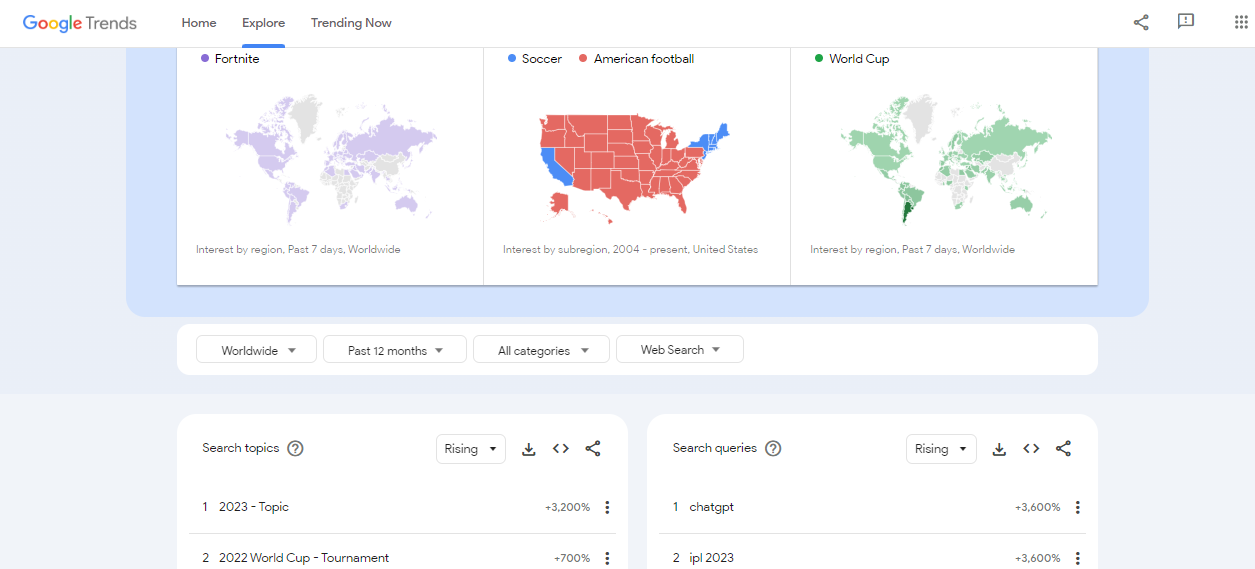
Another useful tool is Think With Google which helps entrepreneurs to fetch ideas, insights, and different case studies. For instance, you can generate research reports, consumer behavior, and emerging trends in E-learning OTT platforms.
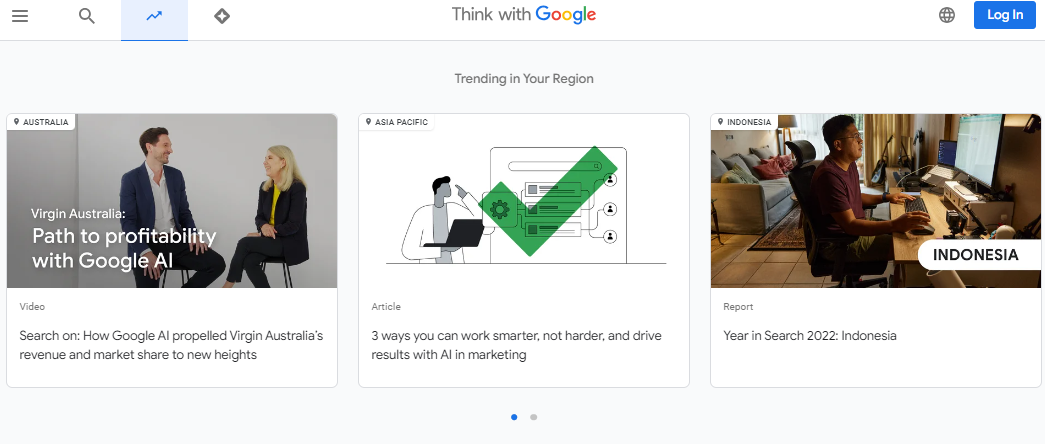
Create Script
Prepare your course description which should contain all the relevant information your students will be interested in. For instance:
- Description of the course
- Sections
- Duration
You can start your development by building thematic blocks and training modules. Later, you can break them down into individual lessons by ensuring that each lesson is focused on a learning objective.
The ideal content of a regular online course comes with 4-6 thematic modules carrying 3 lessons each.
Your content and its delivery method will define the direction of your online teaching platform. Here are some ways that will help you to improve your content and its delivery to engage your learners effectively:
- Shoot & edit video tutorials
- Write scripts for webinars
- Prepare homework assignments such as online and practice tests
Plan Course Structure
Start by dividing the course into different modules/lessons based on the audience's learning objectives. You can do this by naming each course separately. Following are the three most common online course formats that can be used with the OTT platform effectively:
- Step-by-step
To design an online course structure, the step-by-step format is one of the most popular modules. Since it follows a logical progression, every upcoming lesson can be connected with the previous one. Not only does it provide a learner with a solid background to understand the fundamental concept but also connects the ideas by following the previous lecture's content library.
- Week-by-week
Week by week is another popular online course format that provides lesson delivery at a specific time. For example, if your video course has a time span of 10-12 weeks and you have designed time slots for your audience, it is very important to schedule your lesson objectives targeting every week. Similarly, ensure that the targeted objectives are achievable in the given time frame. Remember to offer value to your learners above everything else. This includes both tangible (course completion certificates) and intangible value (knowledge.)
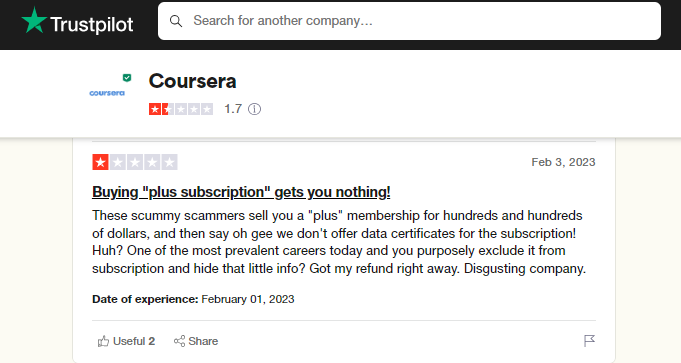
- Reference
In this type of course format, there is no time limit as students can easily access the content whenever they need it. They can learn at their own pace and gradually complete the course. When you create a reference course, focus on easy navigation and frequent primers.
In this scenario, Teyuto helps e-learners and education facilities to organize live or recorded classrooms conveniently.
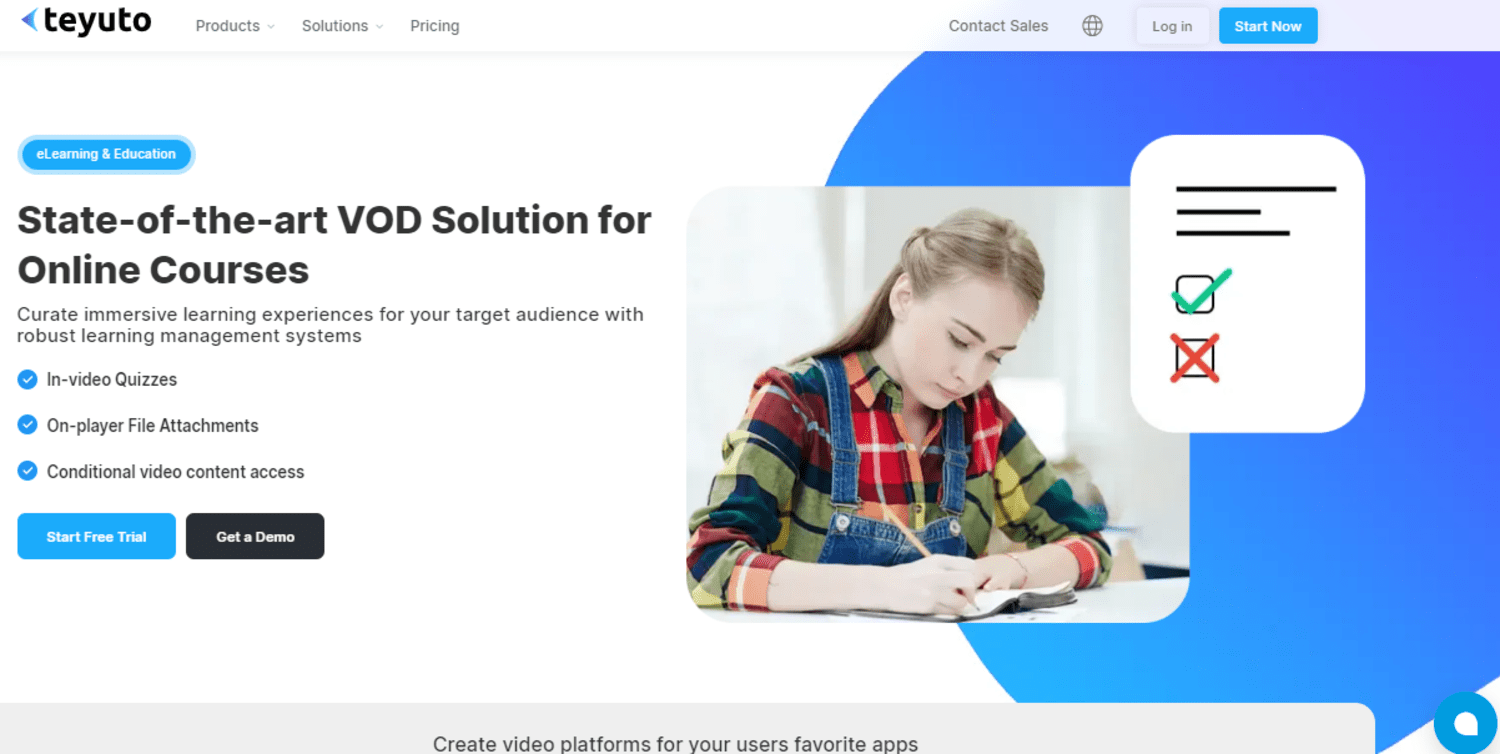
Its navigation system is super-fast which enables you to navigate through several useful features to organize action-packed live sessions.
Develop your video content according to audience preference. Consider producing actionable, easy-to-understand, and engaging content. Evaluating the pain points of your students will grow your channel swiftly.
Hosting Platform
Choose a reliable and scalable OTT platform to support your video content without any hassle. The video hosting management company should allow you to make customization and branding such as adding logos and incorporating scheduled video lessons. In addition, it should be capable of providing a reliable content management system, video analytics, multiple monetization options, and branding.
Why Teyuto as a video management solution for online courses?
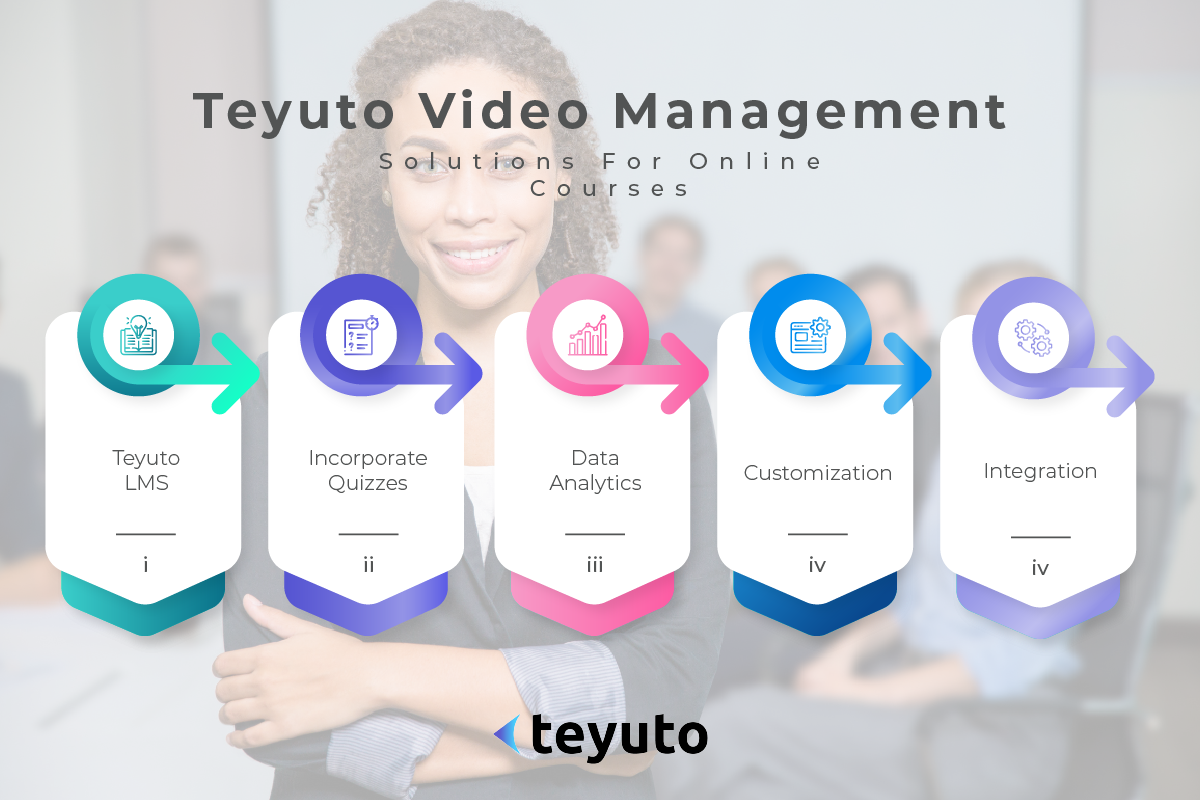
Teyuto as the best video management solution company for e-learning courses incorporates several useful features for instructors. For instance, by using Teyuto Learning Management System, you can conveniently integrate with over 6200 platforms on the web (via Zapier), providing an interactive way to engage your audience in useful learning resources.
Secondly, Teyuto also comes with real-time data analytics features, enabling instructors to gather insightful information to track the performance of the student. Similarly, it simplifies the management of learning processes across multiple platforms via APIs, webhooks, and third-party integrations.
Summary
Hosting your well-designed video lessons on a VOD platform can accelerate and automate the learning experience. Similarly, it will help you make your business scalable to make sustainable money.


Enjoyed this read?